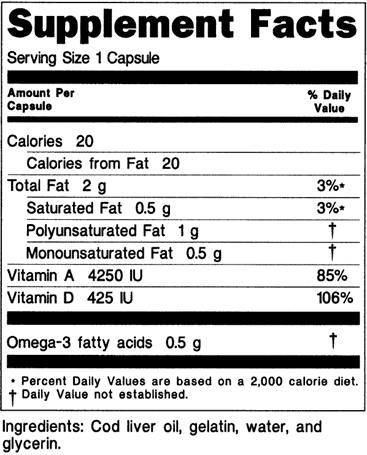Do I Need a Nutrition Label or a Supplement Label for My Product? If you are new to manufacturing and you have a great product you're trying to bring to retail that's nutrition or food-related, you're gonna need a label to educate the consumer about the contents in your product. But how do you know which one? With the rise in functional foods --- food/supplement combinations --- it's no wonder that there's a bit of confusion around what label you might need. For this reason, we're going to cover some of the basics so that you can understand whether you need a supplement label or a nutrition label so you can get to retail that much quicker.
 A supplement facts panel is not required to have all of the nutrients that a nutrition panel requires.[/caption] A food product will be the exact opposite. Food products will be 75-99% food-based with a supplement of some kind added to them. These products will more focused on feeding a consumer and will offer a serving size to be consumed within one sitting. For example, a protein bar can supplement one's need for additional protein as well as contain vitamins & minerals, however, it's purpose is to serve as a meal. It's primarily food-based, and therefore is more of a food product than a nutritional supplement.
A supplement facts panel is not required to have all of the nutrients that a nutrition panel requires.[/caption] A food product will be the exact opposite. Food products will be 75-99% food-based with a supplement of some kind added to them. These products will more focused on feeding a consumer and will offer a serving size to be consumed within one sitting. For example, a protein bar can supplement one's need for additional protein as well as contain vitamins & minerals, however, it's purpose is to serve as a meal. It's primarily food-based, and therefore is more of a food product than a nutritional supplement.
Food Product vs. Nutritional Supplement
When you're trying to determine which label is most appropriate for your product, the first thing you must ask yourself is: is this a food-based product or is it more of a nutritional supplement? For those of you reading who aren't sure of the difference between the two, here's a quick breakdown. A nutritional supplement is something that is primarily in a "dose" form over a "serving size". If your product comes in a capsule, viscous syrup-like liquid, and contains more of a list of vitamins and minerals than macronutrients like carbohydrates, proteins and fat. It will also likely contain little to no caloric value. [caption id="attachment_8871" align="alignleft" width="367"] A supplement facts panel is not required to have all of the nutrients that a nutrition panel requires.[/caption] A food product will be the exact opposite. Food products will be 75-99% food-based with a supplement of some kind added to them. These products will more focused on feeding a consumer and will offer a serving size to be consumed within one sitting. For example, a protein bar can supplement one's need for additional protein as well as contain vitamins & minerals, however, it's purpose is to serve as a meal. It's primarily food-based, and therefore is more of a food product than a nutritional supplement.
A supplement facts panel is not required to have all of the nutrients that a nutrition panel requires.[/caption] A food product will be the exact opposite. Food products will be 75-99% food-based with a supplement of some kind added to them. These products will more focused on feeding a consumer and will offer a serving size to be consumed within one sitting. For example, a protein bar can supplement one's need for additional protein as well as contain vitamins & minerals, however, it's purpose is to serve as a meal. It's primarily food-based, and therefore is more of a food product than a nutritional supplement.



